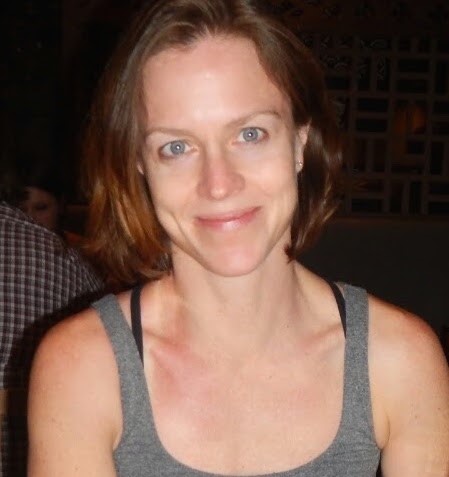Consequences and Misunderstandings from My Son’s Autism Diagnosis

The consequences of my family’s reactions and the misunderstandings of friends around my son’s autism diagnosis sometimes make me wonder if it was worth it.
I remember when I first had a glimmer that my son might be on the autism spectrum. He was about three years old, and I had just read an article in a parenting magazine. The author was describing the challenges of getting her son to daycare every morning – the worry her son had – and, by extension, that she shared – that he wouldn’t be the one to press the buttons for the security code for the door. That there would be someone in front of them that would perform that task. The intense disturbance felt if this key part of the routine was skipped somehow, with little comfort taken in trying to recreate it.
As I read the article, my stomach dropped. They could have been describing my daily stress with my son – the rigidity to routine, and the inability to cope if things didn’t go a certain way. He was my first-born. I chalked up this attitude to being commonplace among young children. But as I continued to read the article, I realized that wasn’t necessarily the case and that these could be indicators of autism.
My suspicions were confirmed when my son’s Kindergarten teacher asked for a conference. She mentioned that my son had more than average difficulty with transitions, self-regulation, and social skills. She recommended that we have him assessed for ADHD and autism to better understand how to support him at school and at home and to better avail ourselves of the resources on offer.
That night marked the first disagreement my son’s father (now my ex-husband) and I would have about the diagnosis process – but it wouldn’t be the last. My son’s father at first would only agree to the testing for ADHD, seeing it as the lesser of two evils (his views and words, not mine). The psychologists involved in that process strongly recommended assessing for autism as well, and so we did.
My son was diagnosed with ADHD and a mild form of autism. And so began a long series of misunderstanding and consequences as a result of receiving this autism diagnosis.
My mother-in-law wouldn’t even discuss it with me, refusing to believe that her grandson had been diagnosed as such. She told me that he was just pushing my buttons, and indicated that my lack of patience was the problem. That hurt. As an almost full-time caregiver who was at the time working a full-time job, sure I had stress, but I knew that this wasn’t just a case of me being irritated.
Another family member stated, “Boys will be boys.” Well, this boy – my son – could go from zero to 90 in terms of a tantrum over something like an ill-fitting sock. This boy had been known to wail for an hour over the slightest change. Things were not just snips and snails and puppy dog tails here. Glossing over the issue at hand wasn’t helpful.
Friends often thought they were being very kind and helpful about my son’s behaviour. Not all of them knew about the autism diagnosis.
But I can remember returning upstairs to a dinner we were hosting for two of our neighbours – couples with children. I had been downstairs supervising the three kids, my son included. All of the adults were on another floor, and they all told me how I didn’t have to be there supervising and making sure that my son didn’t do anything bad. They were generous and caring, and I’m grateful for that.
Except the truth is, I wasn’t overseeing playtime because I was trying to protect their kids from my “unruly” son. I was there because I had quickly seen that the two other kids were playing together and purposefully ignoring everything my son did and said to them. He was trying so hard, and was acting so calm, and trying to get involved in any type of play or game, and they just shut him out each and every time. So I stayed. I stayed to give him someone to talk to and play with. I stayed so that he wouldn’t get hurt yet again by kids who sensed he was different.
A more serious consequence was the strain it placed on my then-husband and me. He worried about the label. The stigma.
He didn’t want to talk about it. He didn’t want to seek help, assistance with developing social skills, or an individual education plan. I reasoned that if our son had been diagnosed with juvenile diabetes or asthma, we would have no trouble with the treatment. My ex-husband stated what I already knew his feeling to be, “It’s different when it’s a physical condition. I’m not ready to discuss a mental issue.”
I’m in no way saying that the diagnosis led to our divorce. Absolutely not. But it certainly revealed some fundamental differences in the way we were prepared to cope with the path ahead of us.
There have been times when I regretted getting my son diagnosed. It certainly hasn’t always been easy. But through the diagnosis with have received some incredible support. The services on offer have made a difference. And although some people didn’t really understand the situation, others were magnificent. I remember the mom who would always ask my son over for playdates – playdates with kids who completely included him. He felt at home there and he could talk to her about anything. So I thank her. There’s my brother-in-law, who has an amazing, deep, and wonderful connection with my son that has meant the world to both of us. And there has been so much growth and improvement in my son that is the result of his hard work, determination, and wonderful personality.
Have there been consequences of my son’s autism diagnosis? Absolutely. But ultimately it was the right thing to do.
He is his own person now, with friends and family members who value him just the way he is.
And I’m his very proud momma.
















Thank you for your insight on your journey! It was really interesting!
I was curious about how you found the services for children with autism in Ontario. My spouse wants to move there ever since he heard that the government overhauled the services available, mainly that there would be a specialist assigned to a child that would follow him and work with him regularly until he turns 18.
Is thus true? How is the waitlist? How do you find the services in Ontario?
Thank you in advance for any info you can share with me!
I’ve read a few of this authors articles including on CBC… I’m having trouble connecting with her content. That aside, why do so many professional writers mix up I and me as subject and object..”was the strain placed on my ex husband and I”. It’s so jarringly wrong. I’ve never commented on grammar or much of anything but things like this undermine the message. I know the author won’t read the comments but jeez.
Jeanne – thanks for your note on the use of “I” and “me” – we missed it, but have updated it now.
I feel very proud of you for doing what you felt was best for your child. As parents sometimes we have to keep fighting for what’s best for our children. I felt that way about my sons health issues and it’s hard to go up against people who do not hear you.
Good job!